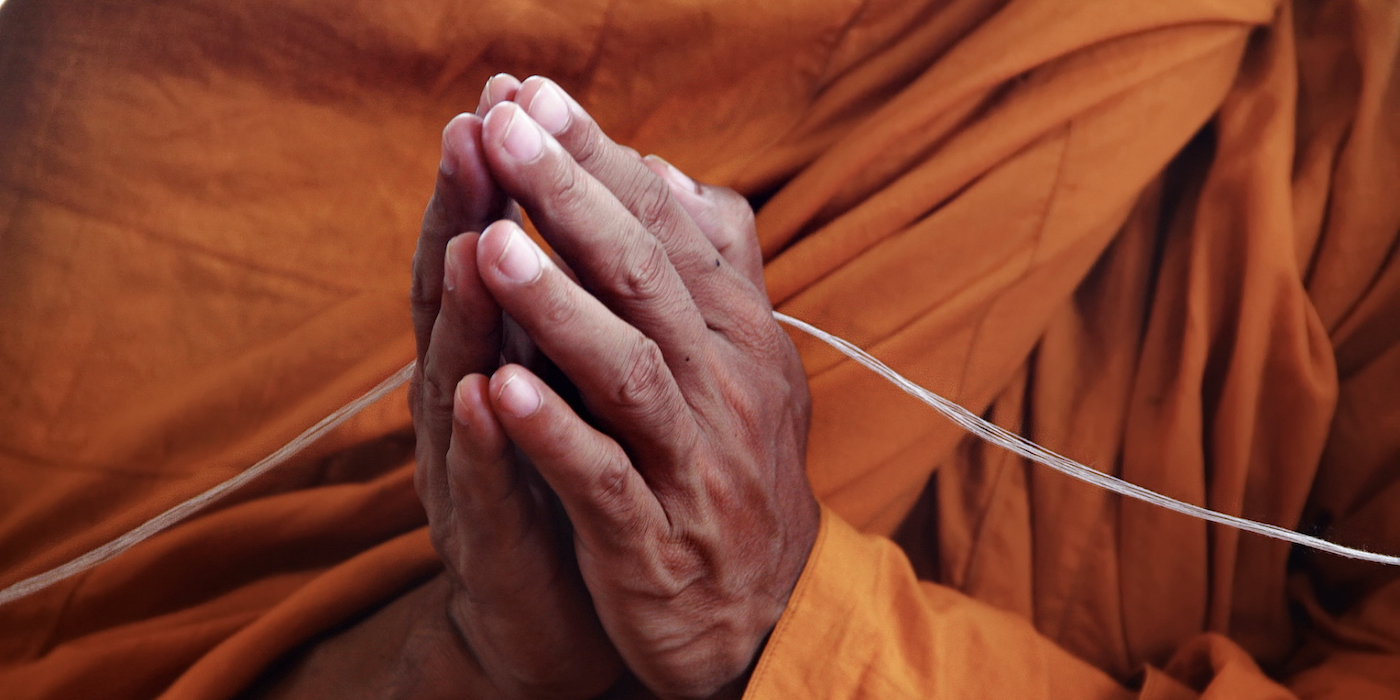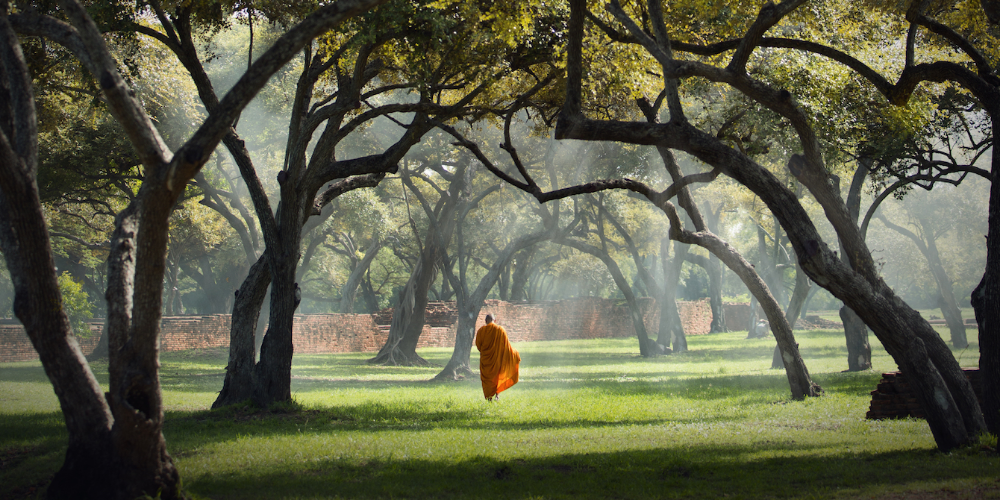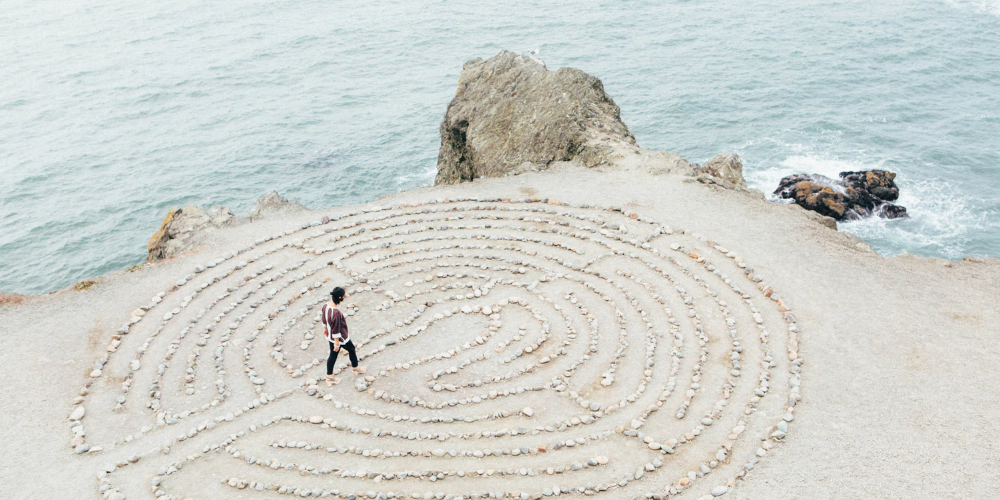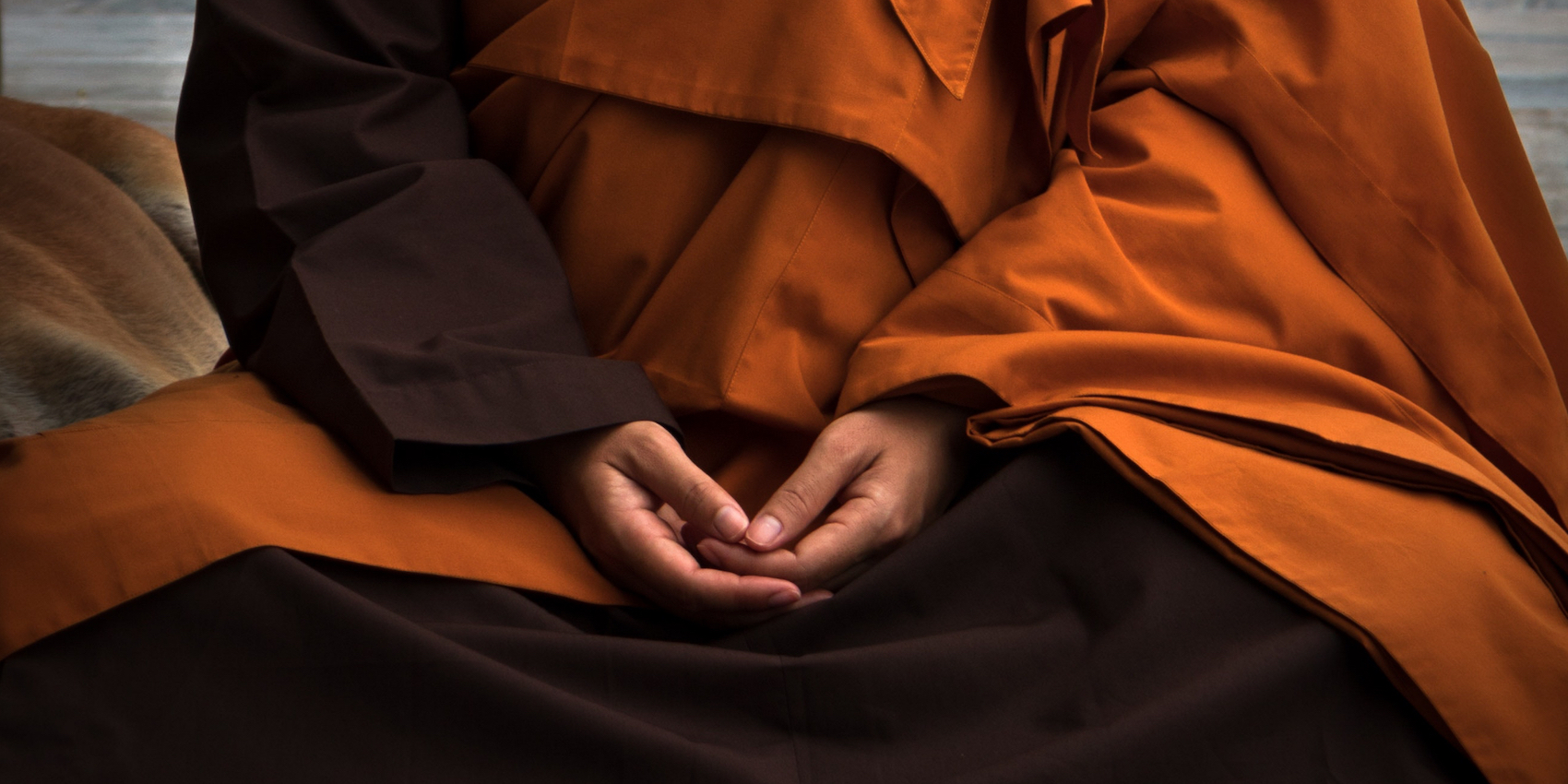Ajahn Achalo Bhikku is a Buddhist monk and currently the abbot of Anandagiri Forest Monastery in Petchabun, Thailand. We asked him want it means to be a Buddhist:
As someone who has formally gone forth as a Theravada Bhikkhu, a monk in the ancient and original Buddhist monastic lineage more than 20 years ago now, being a Buddhist means a great deal and is at the very heart of my traditional lifestyle as well as my deeply committed meditation practice.
I could literally write a book about what it means to me to be a Buddhist. However, in trying to keep this succinct and relevant to as many people as possible I will try to focus upon what would appear to be the most important central principles.
You might want to listen to these accompanying mantra music tracks by Ajahn Achalo while reading:
- Homage to the Buddha - Chanting with Music Ajahn Achalo 4:42
- Mantra Of Avalokiteshvara Long Ajahn Achalo 11:03
- Om Mani Padme Hung Mantra Of Compassion And Wisdom Ajahn Achalo 8:30
What It Means To Be A Buddhist: Purification & Liberation
Firstly, to be a Buddhist means one has deep confidence and faith or belief in a truly wonderful potential innate in conscious beings. That is the potential to ‘realize’ or ‘awaken’ to a purified state above and beyond the power of greed, hatred, and delusion which are acted upon out of ignorance. Through uprooting and abandoning ignorance by cultivating mindfulness and wisdom — their antidote — the deeper potential of the mind is realized.
Discover Dharma teacher Malcolm Huxter’s essay about mindfulness in Buddhism and contemporary psychology.
Lord Buddha demonstrated this process of purification and liberation through his own life and Enlightenment over 2500 years ago. It is a wonderful blessing to be able to believe in the inherent goodness of oneself and others, and in the extraordinary potential that we all share. A cause for optimism and hope which is based upon Truth.
The Path & Teachings Of Lord Buddha
Because the Buddha was the first in this era to fully realize this potential, and then to teach the Path towards this realization to others, Buddhists feel immense gratitude, love, and respect to Lord Buddha.
The Buddha does not oppress or judge. Through his freely given Teachings, he empowered and encouraged. Feeling this well-deserved gratitude brings humility and joy to the heart. (Which is so much nicer than resentment and pride!)
The fact that many others have realized and experienced liberation by following his Teachings and recommended practices further points to the universality of the enlightenment potential of beings. Having this innate potential is something we can feel grateful for and deeply appreciative of. Then, of course, comes the Path of cultivation and actualization.
Read more: Discover Buddhist teacher Scott Tusa’s reflection on asking open questions.
3 Pillars Or Lord Buddha’s Path
Lord Buddha explained his Path in brief as having three central pillars or components
- Generosity,
- Virtue and
- Mental Cultivation.
Because the power of greed, hatred, and delusion is great, it is necessary to weaken it with equally great effort and commitment.
This is another important aspect of being a Buddhist. Because one respects the realization and teachings of the Buddha one tries to follow his recommendations sincerely. Similarly, because one respects one’s deeper nature and potential one acts in a manner that honors this.
It is important to be generous because it weakens the darkness of greed and attachment. One commits to ethical behavior to restrain both greedy and aversive behaviors.
The Buddha explains clearly that an untrained mind is dark — like a lotus bud under murky waters. When a practitioner is generous and ethical, the merit of ‘a good heart’ is empowered literally to shine forth, and the mind becomes like a lotus bud now above the level of the water. When illuminated further by the sunshine of mental cultivation the lotus will grow and fully blossom.
Generosity and Virtue are the necessary foundations for the further ripening influence of Mental Cultivation. Mental Cultivation has many facets: The meditation practices that we do to cultivate and sharpen mindfulness, to stabilize ‘collectedness’ or concentration. As well as the contemplations and investigation we add to this to uproot ignorance and deepen wisdom.
Generosity, Virtue and Mental Cultivation work in tandem to uproot the negative qualities embedded in the mind through past habits.
Over time, sincere practitioners can experience for themselves that the influence of negative qualities tangibly weakens, while the power of virtue and loving-kindness grows great. Delusion dissipates while clarity and understanding deepen. I have experienced some of these results for myself and so feel great love for both the Buddha and the practice of Dhamma – the Path — and feel honored to be a part of the Sangha.
Read more: Explore Buddhist teacher Scott Tusa’s reflection and meditation on what Buddha-nature is.
The True Refuge
In closing, I would like to note that to me being a Buddhist means having a True Refuge.
Inner confidence about the goodness of one’s deeper nature as well as a clear Path to cultivate that will assuredly lead to less suffering, greater peace, and that will eventually culminate in the liberation and realization of one’s deepest potential.
Immoveable and Unceasing — Unshakeable Peace. I am wishing these things for all beings now!
Dr. Miles Neale, a leading Tibetan Buddhist teacher and psychotherapist, also reflects on what it means to be a Buddhist.
Growing Up
What it means to be a Buddhist is to grow up! To mature one’s perspective to see and live in accord with reality just as it is. Rather than to live life according to our evolutionary instincts, our child-like fantasies or reacting to our mass hallucination.
For Buddhists, there is no one to blame. No one can save us either. Ultimately, we are our own worst enemy and our only salvation. Delusion is our enemy and wisdom is our salvation.
The mind is primary for the Buddhist.
Our experience of the world is coming from our minds. Life is mostly a projection. A distortion. A nightmare overlay. We go around in circles and meet with the same ill-fated outcomes. We endlessly and sadly recreate the tragedies we have already experienced. Again and again. This is called samsara, our existential predicament. We are sleepwalking. Lost and confused.
Waking Up
Being a Buddhist means committing to waking up. Stopping the nightmare from perpetuating itself. Because the nightmare is caused by the mind, and the mind just like the brain is essentially open and flexible, it can untangle and reprogram itself. We can discover and reclaim our innate power for freedom and creativity. And then wield that power with ethical responsibility.
Once we have discovered true refuge within, clarifying our mind and accessing its potential, the purpose of our life is to help others to awaken. We commit to awakening for the benefit of others. This is called bodhicitta, our existential purpose. This is what it means to be a Buddhist. Resolving to use our precious human life and resources to grow up, wake up, and to help others do the same.
Meditate with Miles and let him guide you through these handpicked meditations:
- The Four Noble Truths Dr. Miles Neale 10:50
- Brief Mindfulness Of Breathing Dr. Miles Neale 7:16
- Brief Loving-Kindness Meditation Dr. Miles Neale 9:46
There are many ways to describe what it means to be a Buddhist, a more classical way, a simple way or your individual interpretation.
The simplest way to ex








